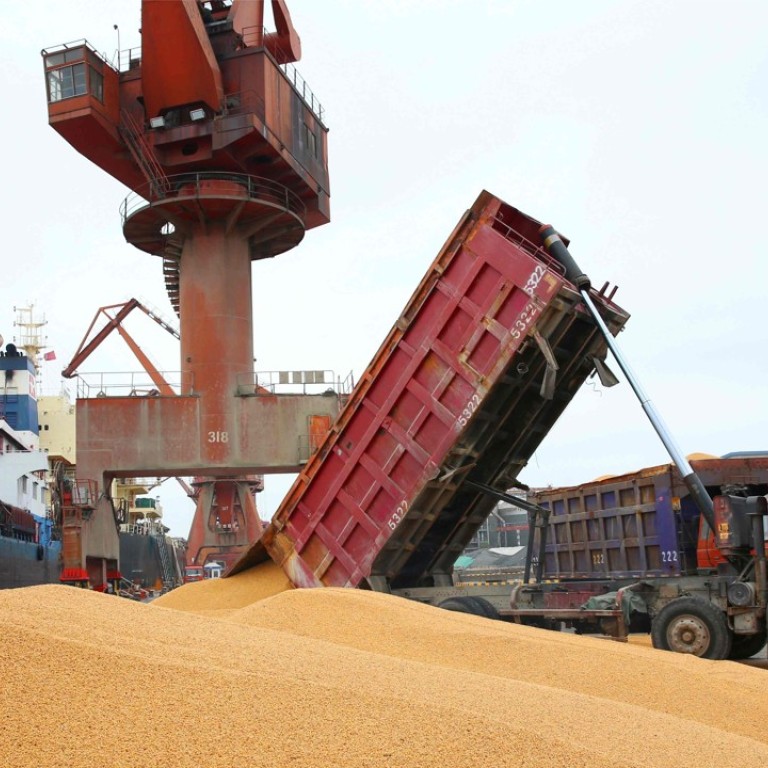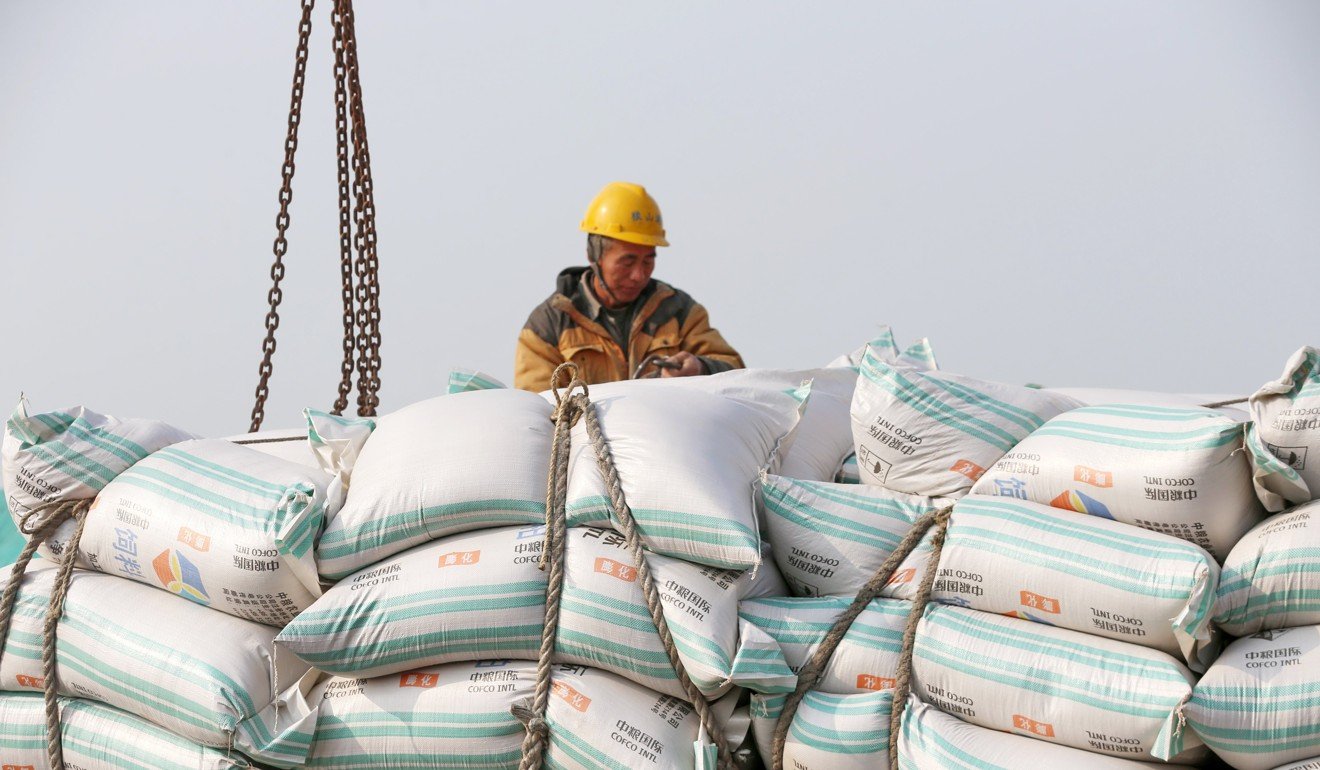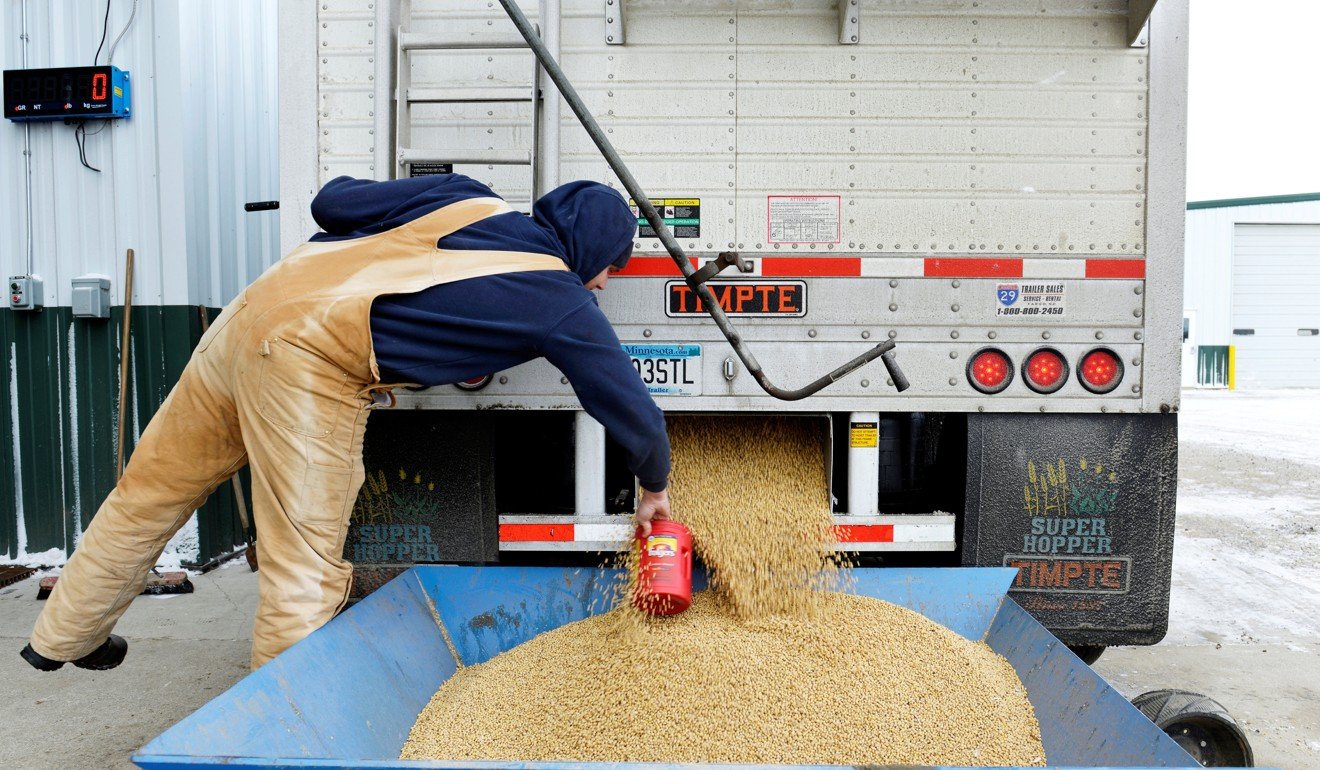
Donald Trump faces farmers’ wrath as China’s tariffs put US soybean exports at risk
American growers were already working on razor-thin profit margins before Beijing imposed retaliatory 25 per cent tariffs on the crop
US President Donald Trump will be under pressure from American farmers to tone down his tough approach with China after Beijing responded to US penalties on Chinese goods with punitive 25 per cent tariffs on US soybeans.
Playing one of its biggest cards in the escalating trade conflict with Washington, Beijing included soybeans in its list of 106 imported American items that will be subject to the retaliatory duties announced on Wednesday.
When in place, the added tariffs will deeply hurt Washington – and American farmers – given that the crop is the highest valued US export to China, worth US$14 billion annually.
American soybean farmers were already working on razor-thin profit margins before China imposed its retaliatory duties.
Allan von Mehren, China economist at Denmark-based Danske Bank Markets, said Trump will feel the heat at home as the American agriculture lobby and aircraft industry – also included on China’s tariffs list – ramp up calls for a softer strategy from the US president.
“Each part is playing their hand in a strong way to show force,” von Mehren said.
Paul Burke, the North Asia regional director for the US Soybean Export Council, said it came as no great surprise when Beijing included US soybeans in its planned tariff action.
Who will be the winners and losers in a China-US trade war?
Beijing had made it clear last September that US soybeans could be hit in a US-China trade war, he said.
But it was unfortunate that the moves would hurt both American farmers and Chinese soy processors and consumers, Burke said.
“We are regretful that the duties are as high as they are because our modelling shows that this will have quite a severe impact on the volume of US soybeans that China would likely import,” Burke said.
If the conflict were to escalate and Beijing increased punitive duties on US soybeans to 30 per cent, US exports to China could plunge by as much as 70 per cent, the council predicted.
China Eastern hints at route, aircraft changes if US trade war escalates
Although planned US soybean shipments so far remain unaffected by China’s retaliatory tariffs, the crop’s price has dropped as much as 5.3 per cent on the Chicago Board of Trade – its sharpest decline since July 2016.
If China’s tariffs were enacted, American farmers could increase exports of soybeans to the European Union, Japan, South Korea, Thailand and other markets, Burke said, but such a move would occur only after the US industry had taken a hit.
Beijing’s measures followed the Trump administration’s imposition of similar penalties on Chinese goods – a move that Washington said was tied to the results of an investigation by the US Trade Representative’s Office into China’s alleged theft of intellectual property.
Besides soybeans, the tit-for-tat trade measures that have marked the most significant confrontation in decades between the world’s two largest economies also have targeted major items such as Chinese manufacturing machinery and American pork products.
Erland Ek, agriculture and trade research manager at China Policy, a Beijing-based consultancy, said China might be willing to endure the impact of Trump’s trade actions if its soybeans tariffs bring the US president to the negotiation table.
While China is playing “a hard card”, “they know the US soybean community will be very scared, and they are powerful towards Trump”, Ek said.
“By putting soybeans out there, China seems to be signalling that they’re willing to take the hit in the shorter term in order to win this in the longer term.”

China has already shifted its subsidy policies to favour domestic soybean production, accelerating a long-term strategy to “hedge away from dependency on US soybeans”, Ek said.
But China’s domestic soybeans are not genetically modified, as US imports are, making them more expensive as livestock feed.
While Trump’s tariffs may not entirely deter China from buying US soybeans, the measures are likely to prompt China to draw from its state food reserves in the short term and turn to other exporters such as Brazil and Argentina in the long term, according to Tommy Wu, an Oxford Economics senior economist.
China says it imposed tariffs on US products to protect national interest
It is not clear “whether these other countries would have the capacity to fill in the gap,” Wu said. “But the tariffs will cause food inflation to increase domestically, from the hiked-up soybean prices themselves and on feed for the pork industry.”
Jake Parker, vice-president of China operations at the US-China Business Council, said punitive tariffs have the potential to cause collateral damage for US households, farmers and manufacturers.
“No one wins in a trade war,” Parker said.
“Business wants to see solutions to the problems – results that will positively address the technology protection issues – not just tariffs and counter-tariffs that will do more harm than good.”


